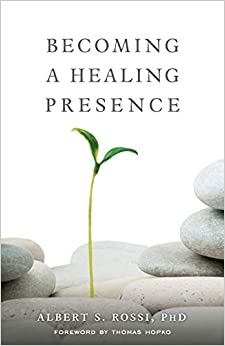This Tuesday we will be looking at Chapter 7 “The Sacrament of the Present Moment” of Dr. Albert S. Rossi’s book Becoming a Healing Presence. Dr. Rossi’s theme of this chapter raises (though does not explore) what is the nature of time. In Book (chapter) 11 of his Confessions, St. Augustine (354-430) asks the question which even today continues to perplex physicists: “What is time? If no one asks me, I know what it is. But if I wish to explain it to the one who asks, I do not know.” (The relevant excerpt is attached, 11.14.17.) Augustine understands God to be the creator of time. Therefore, God is outside of time, and thus eternally present. Augustine goes on to work through the nature of the existence of the past and the future. At first, Augustine states that the past cannot exist because it is past. And the future does not exist because it has not yet occurred. Only the present exists, but the present has no duration and only exists in an infinitely brief period. However, Augustine realizes that if God was in the past and if God is in the future, then both the past and the future must exist presently. Therefore, all things exist presently, and any distinction between past, present, and future is not real. In the Theory of Relatively, modern physics reaches the same conclusion that the passage of time is only an illusion and that all things are present. A good discussion from the modern scientific view of this same issue is HERE. The discussion of the illusion of time begins at 18:45.
The importance of this understanding of time is fundamental to Christianity. For example, as Christians, we proclaim that Jesus Christ is the atoning sacrifice for the sins of the whole world. 1 John 1:2. But, this proclamation can only be true if our future sins existed at the time of the Passion (for otherwise how can forgiveness be given for something that does not exist) or if the Passion exists at the time of our sins (for otherwise how can we be assured of our forgiveness). And we specifically see this timelessness of Christianity in the Eucharist. For in the Eucharist we not only recall a past event (Last Supper, Passion, Resurrection) nor proclaim a future event (Second Coming), but we fully participate in the present reality of both. The effectiveness of the Eucharist depends upon its opening our eyes to the very reality of these “past” and “future” events being eternally present.
Dr. Rossi’s discussion has this same understanding at play. God is eternally present. Therefore, it is only in our experience of the present that we “have the experience God has of reality as a whole.” (p.116). And the reality is that “In the person who dwells in the present now, God begets His Son without ceasing.” (p.117)
We will not talk about the nature of time on Tuesday! But if you have the opportunity, please think through what is time and read Augustine and watch the video. Dinner is at 6. Menu is chicken divan. Discussion about 6:45. Hope to see you here.
In the beginning, O Lord, you laid the foundations of the earth, *
Psalm 102:25-28
and the heavens are the work of your hands;
They shall perish, but you will endure;
they all shall wear out like a garment; *
as clothing you will change them,
and they shall be changed;
But you are always the same, *
and your years will never end.
The children of your servants shall continue, *
and their offspring shall stand fast in your sight.

